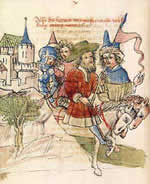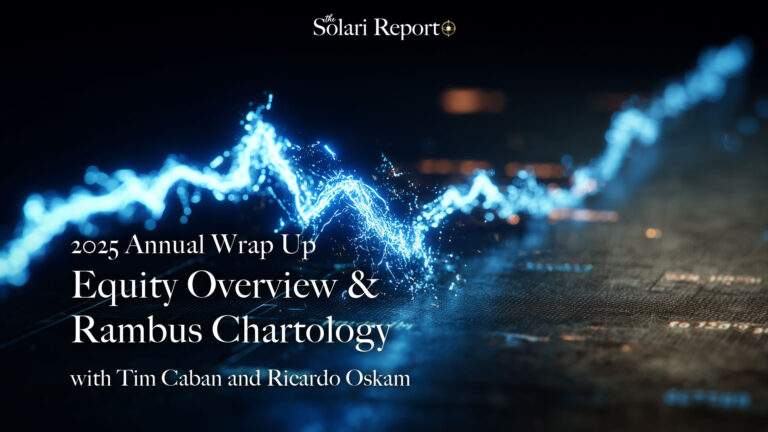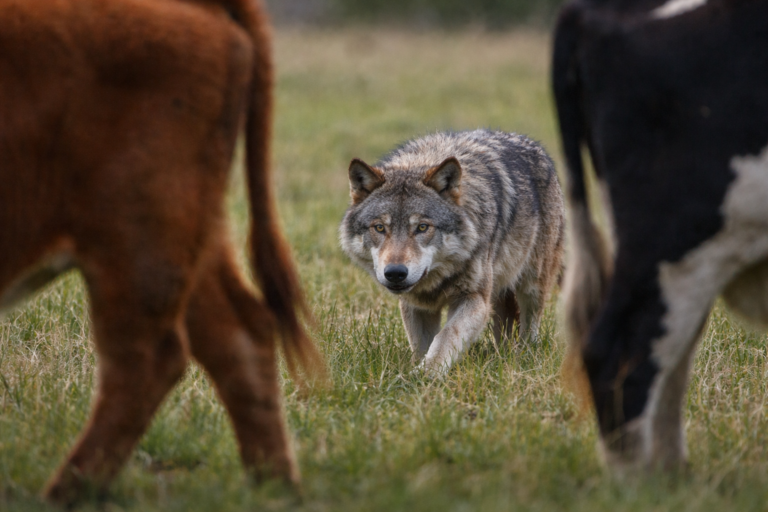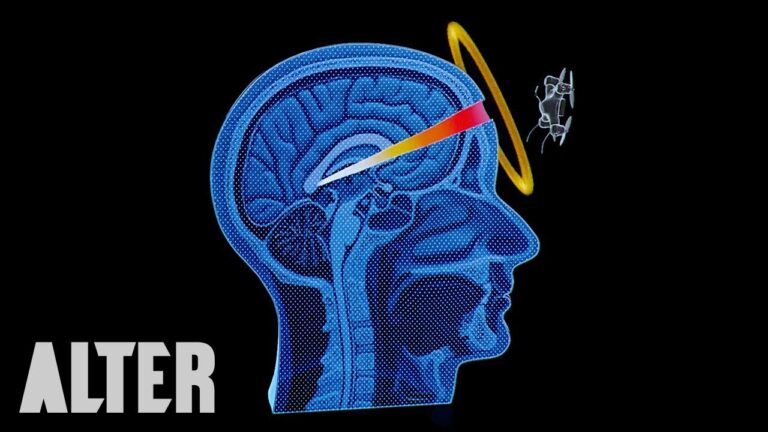 I am reading Parzival with a friend from British Columbia and it has me thinking about the search for the Holy Grail.
I am reading Parzival with a friend from British Columbia and it has me thinking about the search for the Holy Grail.
I just wrote a note to a subscriber:
“One way to organize your finances is to ask yourself the theoretical question: if the most powerful people in the world were planning to depopulate the global population down to 500 million and the US population down to 100 million, how would I ensure that my family and those I love were among the 100 million and how would I do that in a manner that could contribute to a grassroots/divine effort to transform the situation entirely?”
So, I can relate to a medieval poem about a knight that spends a lifetime searching for something.






















































































































David:
I have not written it. The thought came from an estimate I made in 1999. Remember, I had built extensive databases and tools to try to simulate the US economy. So I had a remarkable feeling for the intimate relationships between people and places and national and international public and private financial policy.
A very capable money manager asked if he could speak with me privately. He knew I had been researching the financial manipulations underway. He was one of those people who understood the global economy and the implications of the strong dollar policy and manipulations underway. He said to me very quietly, “Could it be possible that the powers that be are engineering significant depopulation.” I said, “my estimates show that they are either planning to depopulate significantly worldwide (I believe I used the 500MM/100M estimate) or they expect climate and geographical changes to do so or a combination of the two.”
His whole demeanor sunk. I realized that it was the first time I had ever said my estimate explicitly — it being unpleasant to give voice to such thoughts.
So it was a hypothesis at that time. I have not written about it as it was just that — a hypothesis — and because I believe that the course of events will not be determined by the actions of the so-called “New World Order — their actions will inspire other actions and as a Christian, I believe that the whole affair is in the hands of God. I am interested in helping people taking actions to shift our situation and, by doing so, invite in divine powers.
To engage in a discussion of the hypothesis, a group of people need to understand the thousands of component pieces or symptoms that would lead me to form such a hypothesis. I have found that most people do not want to look at or face those pieces….so I keep dribbling them out while events cause a shift in conciousness and positive actions open up new pathways.
Hope that helps,
Catherine
Regarding the China peasantry- in my recent reading of Malcolm Gladwell’s latest book “Outliers, the story of Success”-Gladwell speaks about rice farming in China. It is a very precise kind of farming and needs the incentive that either a sharecropping or subtenant farming community-so the system has never been one of starvation as that has no incentive behind it.
Parsival is obviously an ‘outlier’ too. As is Wagner.
Here is a link to youtube of the Good Friday music.
http://www.youtube.com/watch?v=DwdYZWFrBBM&feature=related
[Letter from Richard Wagner to King Ludwig, 14 April 1865]
A warm and sunny Good Friday, with its mood of sacred solemnity, once inspired me with the idea of writing Parsifal; since then it has lived within me and prospered, like a child in its mother’s womb. With each Good Friday it grows a year older, and I then celebrate the day of its conception, knowing that its birthday will follow one day.
Barry Millington writes:
In his searching essay, “The Sorrows and Grandeur of Richard Wagner”, Thomas Mann comes closer than most commentators to describing the sublime, monumental effect of Wagner’s music. It is marked by “pessimistic heaviness and measured yearning”, he says, and speaks of “forces struggling out of dark confusion to find deliverance in beauty”. Nowhere is that sense of a weighty tread allied to unearthly, exalted eloquence more evident than in the composer’s last, most masterly score, Parsifal (1877-82)..
Catherine,
The main “devil’s advocate” to the depopulation scenario that I have so far is futurist Ray Kurzweil. Are you aware of his opinions of the positive technological changes for the last 200 years? I read his last book “The Singularity is Near” (2005) http://www.amazon.com/Singularity-Near-Humans-Transcend-Biology/dp/0670033847 and (even knowing that the underlying economy is ruled by gangsters), Kurzweil identifies many positive exponential growing trends…all trends created while these gangsters were in control. Even if the “geek rapture” of the singularity doesn’t happen, I see a general uptrend in humanity the last few hundred years because life for that many more people now is less desperate than it was 300 years ago. Reading the book made me a much more positive person than I had been.
Kurzweil summarizes his views in a 22-minute lecture on TED: http://www.ted.com/index.php/talks/ray_kurzweil_on_how_technology_will_transform_us.html
[Of course, if the elite see a future where they lose their influence because wealth is everywhere…than that would be a good reason to try to get rid of everyone NOW.]
[and as an aside, the way research is done in the US, I have much more faith in engineering trends I can see with my eyes than science…science research seems much more prone to political manipulation in my opinion…the engineers actually have to sell a product to someone besides the government and military…the same technology that allows elites to track the population’s movements ALSO allow us to track THEM…who doesn’t have a cellphone camera nowadays?]
As far as world depopulation of several billion, I can only see it being done by cutting off the transportation infrastructure by 1)limiting oil. Which cuts off food delivery and everything else since production is not a problem. [Alan Greenspan mentioned in his last book that India throws away a significant factor of produce 25% or more because it can’t get to market on time before it rots] Viruses and bacteria seem way too unpredictable and too hard to control.
2)Or there could be a worldwide shortage of chemical fertilizers? Since the principal ingredients (nitrogen gas, hydrogen gas) are abundant, a madman would want to create a shortage of the catalysts in the reaction of the Haber process. The main catalyst is iron oxide, and the first part of the gas prep requires nickel oxide http://en.wikipedia.org/wiki/Haber-Bosch_process
[funny that a nazi who created chemical weapons created one of the most life-giving processes in human history] Does anyone special control mass production of these catalysts or iron & nickel mines?
3)A.I. is coming along very quickly, but even a killer android prototype must be what 15 years away? Mass production would be maybe 25 years away? And what about factions between the elites using the robots to kill each other off?
4) Nuclear Armageddon? Small arms kill way more people, and killing billions is too difficult unless targeting transportation infrastructure (oil) in the first place. Even the Honor Among Thieves among the gangsters only exists to prevent this type of event. Results on who retains power seem too difficult to control. [There’s a small part of my mind (5%) that even wonders if we live in a Twilight Zone world where nuclear weapons don’t even work (military secrets are controlled by disinformation)…which might explain why the Russian’s nuclear weapons were left unguarded after 1989, even though this control over “loose nukes” was repeatedly mentioned as the greatest security threat to the US by most military analysts. Otherwise, the gangsters now have these loose nukes and will use them as the main threat to a) kill us all b) get what they want my threatening to kill us all]
5)So…watching the mushroom video on TED, I guess the easiest way to kill off humanity is developing a special strain of mushrooms and sabotaging every major oil well in the world with them. [……………………….That was a joke. I think.]
With regards to world depopulation, I’m certain the powers that be are
aware of this very possible upcoming scenario:
http://www.newscientist.com/article/mg20127001.300-space-storm-alert-90-seconds-from-catastrophe.html
It would also be one of many possible explanations for the many underground complexes built
by the government and various corporate interests. Just a thought.
Catherine, you’re one of my Heroes. Keep on truckin’!
Crac:
How funny. I read Kurzweil’s book about a year ago and found it DEEPLY depressing. In part, because I think he vastly underestimates the ability of elites to program/govern/control the technology.
I also think that truly open systems — without the control of humans and machines — will lead to a much more civilized result ultimately. If the New World Order does not kill that hope, Kurzweil’s vision may.
I do think technology advances is part of what is inspiring the control. Let technology out of the closet or the lab and things can spin wildely out of control in good ways and bad. I have always thought that the drive for control of the seed supply may be driven by the expectation of energy technology becoming more widespread.
Funny thought about the mushrooms. I had never thought about using fungi to sabotage….you never know, do you.
Things just keep getting weirder…
Catherine
Just a note for those who intend to grow veggies and share with extended families, neighbors, and friends as a way to keep people healthy and fed during whatever lies ahead. We who are under quarantine for the light brown moth in the California Bay Area are NOT ALLOWED by Federal law to share fruits and vegetables with anyone off of our property.
Anyone wishing to “grow a row” for the local Food Pantry or share produce with their neighbor, may request that the County come out and inspect all properties concerned. No one on the County level could tell me what the punishment would be for disregarding this new mandate.
This quarantine is expanding and has no end date. One official mentioned a connection between our quarantine and Federal Trade agreements. Another quarantine for another moth is apparently around the corner. Add all of this to the fact that our remaining local nurseries no longer carry organic starter plants, the water we have to use for our gardens is fluoridated, and Food Safety legislation before Congress is uncomfortably vague in its relation to defining farmers.
It is my hope that despite the shadow of what is to come, would be gardeners will purchase heirloom and organic seeds, that front yards, side yards and backyards will be filled with healthy home grown fruits and vegetables and that neighborhood abundance gardens and picnics will herald in the future as it should be.